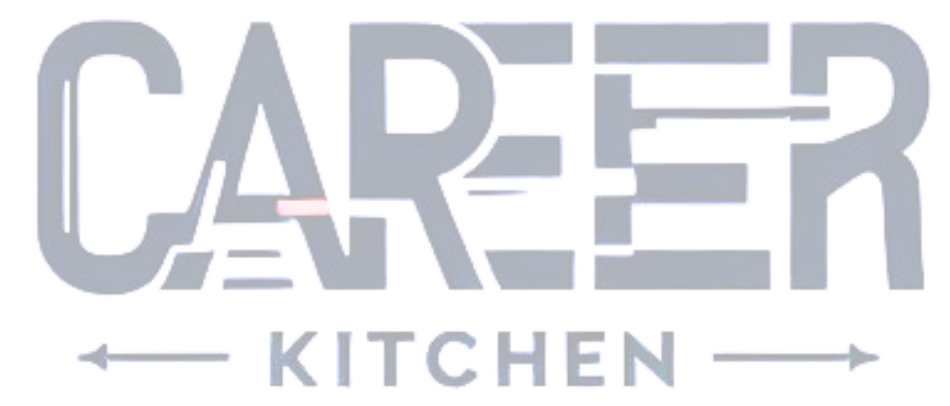Listeners:
Top listeners:


Have you ever thought about working in the exciting world of technology? You might imagine that having strong technical skills, like coding or programming, is the only way to make it in the tech industry. However, there are many other valuable skills that can help you succeed in a tech career, even if you’re not a technical whiz. In this article, we’ll explore some of these essential skill sets that can pave the way for a successful journey into the tech world.
Soft Skills: The Power of Communication and Teamwork:
- In addition to technical skills, there are important “soft skills” that can make a big difference in your tech career. These skills include communication, teamwork, problem-solving, adaptability, leadership, and critical thinking. Strong communication skills will help you express your ideas clearly and work effectively with others. Being a good team player means collaborating with colleagues, sharing ideas, and solving problems together. Remember, in the tech industry, teamwork and effective communication are just as important as knowing how to code!
The Art of Creativity and Innovation:
- Do you consider yourself a creative person? Good news! The tech industry thrives on creativity and innovation. It’s all about thinking outside the box and coming up with fresh ideas. Creative thinking can lead to groundbreaking technologies and improved user experiences. So, don’t be afraid to let your imagination run wild and bring new perspectives to the table. You never know what innovative solutions you might discover!
Understanding the Business Side of Tech:
- Being tech-savvy is great, but understanding the business side of technology is also crucial. Having business acumen means knowing how to align your technical skills with the goals of the company you work for. It involves making smart decisions, understanding market trends, and contributing to the overall strategy of the organization. By combining your tech knowledge with business know-how, you’ll be able to make a real impact in the tech industry.
Becoming a Problem-Solving Pro:
- In the tech world, problem-solving skills are like superpowers! Being able to analyze complex issues, break them down into smaller parts, and come up with effective solutions is invaluable. This skill requires logical thinking, attention to detail, and the ability to troubleshoot and fix technical challenges. So, if you love puzzles or enjoy figuring things out, you’re already on your way to becoming a problem-solving pro!
Embracing Continuous Learning and Adaptability:
- Technology is constantly evolving, which means that as a tech professional, you need to be a lifelong learner. Embracing continuous learning and adaptability is essential. This means being open to new technologies, staying curious, and being willing to learn new skills. The ability to adapt to change quickly will help you stay ahead in the ever-changing tech industry.
Putting the User First: User-Centric Focus:
- The tech industry is all about creating products and services that make people’s lives better. That’s why it’s crucial to have a user-centric focus. It means understanding the needs of the people who will use your technology and creating products that meet those needs effectively. By putting yourself in the user’s shoes, you can design and develop tech solutions that truly make a difference in their lives.
Mastering Project Management:
- Tech projects can be complex, involving multiple tasks and team members. That’s where project management skills come in handy. Being a good project manager means being able to plan, organize, and execute projects successfully. It involves managing resources, timelines, and budgets to ensure that projects are delivered on time and within scope. Developing project management skills will make you a valuable asset in the tech industry.
Conclusion:
In conclusion, pursuing a tech career is not just about technical skills. It’s about developing a well-rounded set of abilities that go beyond coding and programming. Soft skills like communication, teamwork, problem-solving, and creativity are just as important. Understanding the business side of technology, being adaptable, and having a user-centric focus will make you stand out. Lastly, mastering project management will ensure your projects run smoothly. So, if you dream of working in the tech industry, remember that there’s a place for you, no matter what your skill set may be. Embrace your strengths and start your tech journey with confidence!
- Exercise: Participate in group activities where you explain a tech concept to others or write an email to a pretend colleague explaining a project.
- Actionable Step: Join online tech communities and participate in discussions to improve communication skills.
Here is a list of well-known tech companies that often hire entry-level talent. It’s recommended to visit their official websites or popular job portals to explore the positions and duties they offer. Here are 50 tech companies known for hiring entry-level professionals:
- Google: Offers various entry-level positions in software engineering, data analysis, marketing, and more.
- Microsoft: Provides opportunities for entry-level roles in software development, product management, and technical consulting.
- Apple: Hires entry-level candidates for software engineering, design, customer support, and retail positions.
- Facebook: Offers entry-level roles in software engineering, data analysis, marketing, and product management.
- Amazon: Provides entry-level opportunities in areas like software development, operations, customer support, and marketing.
- IBM: Hires entry-level professionals in software development, consulting, cybersecurity, and data analysis.
- Intel: Offers entry-level positions in hardware and software engineering, research, and development.
- Cisco: Provides opportunities for entry-level positions in networking, cybersecurity, and software development.
- Oracle: Hires entry-level candidates for software engineering, database administration, and technical consulting.
- Salesforce: Offers entry-level roles in software engineering, sales, marketing, and customer success.
- Adobe: Provides entry-level positions in software development, design, marketing, and customer support.
- NVIDIA: Hires entry-level professionals in areas such as graphics processing, artificial intelligence, and software engineering.
- Qualcomm: Offers opportunities for entry-level roles in wireless technology, semiconductor engineering, and software development.
- Dell: Provides entry-level positions in hardware and software engineering, technical support, and sales.
- SAP: Hires entry-level candidates for software development, consulting, and business analysis roles.
- Accenture: Offers entry-level opportunities in consulting, technology services, and digital marketing.
- Hewlett Packard Enterprise: Provides entry-level positions in software engineering, data analysis, and IT operations.
- Twitter: Hires entry-level professionals in software engineering, data analysis, product management, and marketing.
- Uber: Offers entry-level roles in software development, data analysis, operations, and product management.
- Lyft: Provides entry-level opportunities in software engineering, data analysis, operations, and customer support.
- Netflix: Hires entry-level candidates for software engineering, data analysis, content operations, and product management.
- PayPal: Offers entry-level positions in software engineering, data analysis, risk management, and product development.
- Airbnb: Provides opportunities for entry-level roles in software engineering, data analysis, customer support, and marketing.
- IBM: Hires entry-level professionals in software development, consulting, cybersecurity, and data analysis.
- LinkedIn: Offers entry-level positions in software engineering, data analysis, sales, and marketing.
- VMware: Provides entry-level opportunities in software engineering, IT infrastructure, and cloud computing.
- Electronic Arts: Hires entry-level candidates for software engineering, game development, design, and quality assurance.
- Sony: Offers entry-level roles in software engineering, game development, multimedia, and design.
- Ubisoft: Provides entry-level positions in game development, software engineering, design, and quality assurance.
- Intel: Hires entry-level professionals in areas such as hardware and software engineering, research, and development.
- Red Hat: Offers entry-level opportunities in software development, open-source technology, and system administration.
- SpaceX: Provides entry-level positions in aerospace engineering, software development, and mission operations.
- Adobe: Hires entry-level candidates for software development, design, marketing, and customer support.
- Square: Offers entry-level roles in software engineering, data analysis, product management, and customer support.
- Yelp: Provides entry-level positions in software engineering, data analysis, product management, and sales.
- Slack: Hires entry-level professionals in software engineering, product management, design, and customer support.
- IBM: Offers entry-level opportunities in software development, consulting, cybersecurity, and data analysis.
- Cisco: Hires entry-level candidates for networking, cybersecurity, software development, and technical support.
- Oracle: Provides entry-level positions in software engineering, database administration, and technical consulting.
- IBM: Offers entry-level opportunities in software development, consulting, cybersecurity, and data analysis.
- Verizon: Hires entry-level professionals in areas such as network engineering, software development, and cybersecurity.
- IBM: Provides entry-level positions in software development, consulting, cybersecurity, and data analysis.
- VMware: Hires entry-level candidates for software engineering, IT infrastructure, and cloud computing.
- SAP: Offers entry-level roles in software development, consulting, and business analysis.
- Juniper Networks: Provides entry-level positions in networking, software engineering, and cybersecurity.
- Intel: Hires entry-level professionals in areas such as hardware and software engineering, research, and development.
- Tableau: Offers entry-level opportunities in data analysis, software development, and product management.
- IBM: Provides entry-level positions in software development, consulting, cybersecurity, and data analysis.
- Tesla: Hires entry-level candidates for positions in electrical engineering, software development, and manufacturing.
- Reddit: Offers entry-level roles in software engineering, data analysis, product management, and community management.
Search
Latest tags
Blog News
Premium Podcast Series
Level up your skillsets with categories ranging from Entrepreneurship, Career Navigation and Leadership.

Copyright Offr Media LLC © 2024 All Rights Reserved.

